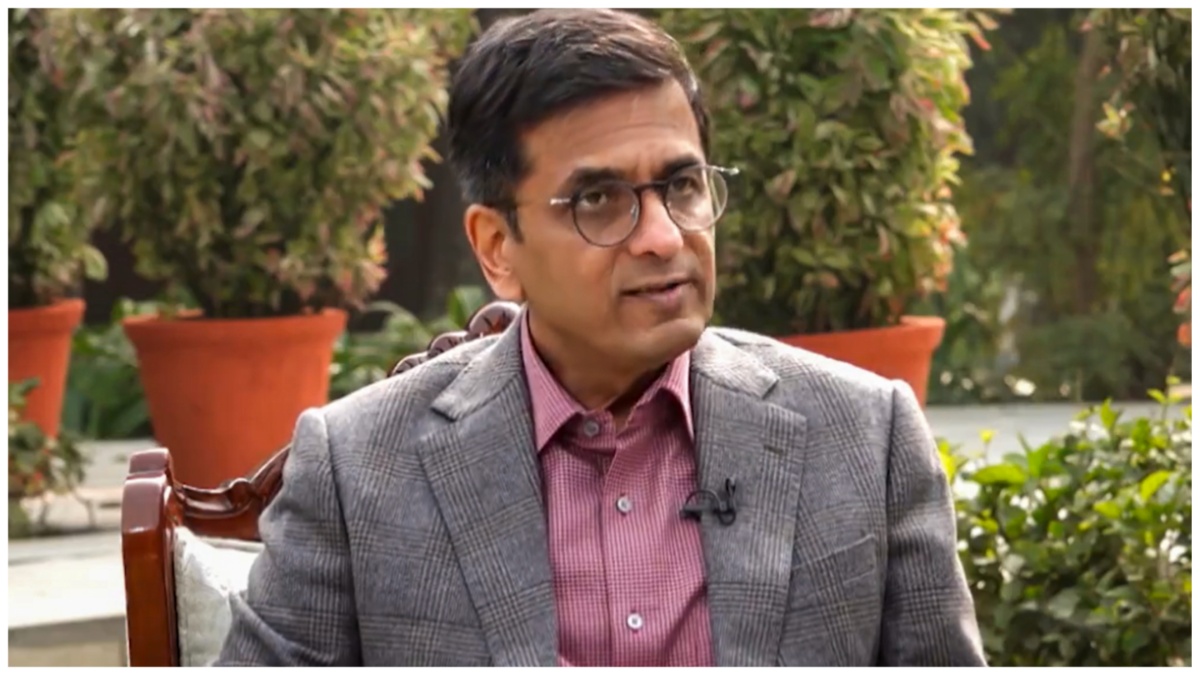CJI Chandrachud
The Supreme Court had given a historic verdict in the Ayodhya case four years ago. Now Chief Justice of India DY Chandrachud gave a statement on this matter on Monday. In his statement, he said that the five judges who ruled in favor of the construction of a Ram temple by a trust at the disputed site in Ayodhya had unanimously decided that the name of any judge who wrote the judgment should not be mentioned in it. Let us tell you that on 9 November 2019, a historic decision was given in the Ram Mandir case. At that time, the then Chief Justice Ranjan Gogoi headed the five-judge constitutional bench. It was also decided that 5 acres of land should be given to Sunni Waqf Board at some other place in Ayodhya for the construction of a mosque.
What did CJI Chandrachud say on Ayodhya decision?
Justice Chandrachud, who was part of the bench that delivered the judgment in this regard, in an exclusive interview with ‘PTI-Bhasha’ spoke candidly about not mentioning the name of any judge in the judgment and said that when the judges sat together, as that they do so before any announcement, it was unanimously decided that it would be a “decision of the court”. He was answering the question as to why the name of the judge who wrote the judgment was not made public. The CJI said, “When the five-judge bench sat to deliberate on the judgment, as we all do before a judgment is pronounced, we all unanimously decided that this would be the judgment of the court. And, therefore , the name of any judge who wrote the judgment was not mentioned.” He said, ‘This case has a long history of conflict, there are diverse viewpoints based on the history of the country and those who were part of the bench. Said that this will be the decision of the court. The court will speak with one voice and the idea behind doing so was to send a clear message that we are all together not only in the final outcome but also in the reasons given in the judgment.”
Revealed in interview
“I will conclude my reply with this,” he said. Delivering a unanimous verdict in the case that has polarized the country, the apex court bench had in 2019 said there is no dispute about the belief of Hindus that Lord Ram The birth took place at the respective site, and symbolically he is the owner of the respective land. Nevertheless, it was also clear that the demolition of the 16th century three-domed structure by Hindu kar sevaks, who wanted to build a Ram temple there, was a wrong that “must be addressed”, the court had said. The top court had said it had nothing to do with faith and belief and instead treated the matter as an ownership dispute over the land between three parties – the Sunni Muslim Waqf Board, the Nirmohi Akhara, a Hindu group and Ram Lalla Virajman. . The Supreme Court’s 1,045-page judgment was widely welcomed by Hindu leaders and groups, while the Muslim side said it would accept the judgment even though it is flawed.
(input language)
Latest India News
